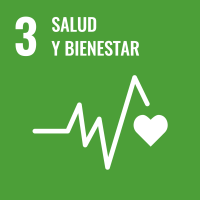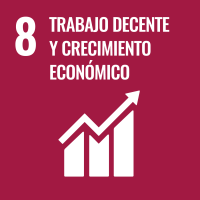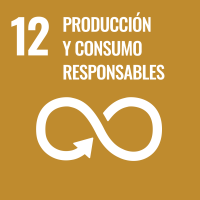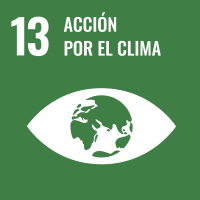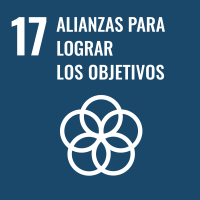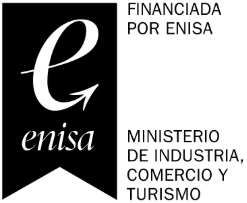1.- What is Naturcode
Naturcode is an independent digital platform that provides the consumer with information on the features, special characteristics, and origin of agri-food products through the reading of a QR code (NFC or other digital tool) placed on the product.
Naturcode’s distinctive code is a direct, agile, fast, and easy point of contact between the consumer and the producer. Through the reading of the code with their device (through the camera, the NFC reader or another tool), the consumer has access to information of interest, which goes beyond what is reflected on the physical label of the product, including functionalities, tools and data (about the product and/or the operators) that can be useful for the different links of the value chain in different areas. This helps to transmit trust and provides novel advantages in the relationship between stakeholders through the promotion of transparency in the information provided.
2.- Goals and roles in society: TRANSPARENCY
- Promote transparency in the agri-food value chain.
- Offer tools to achieve the best possible connection between the links of the agri-food chain, thus helping improve food security as well as promote transparency and free competition.
- Offer transparent, accurate, complete, accessible, and personalized information on products in real time, thus empowering the consumer’s ability to choose.
- Evolve at the pace of both the marketplace and technologies to adapt and improve labeling and information systems for consumers.
- Contribute to the creation of value in the agri-food chain, minimizing possible risks due to fraud and allowing a greater reaction to any incident.
- Foster the trust of consumers in those producers committed to transparency and truthfulness.
3.- Philosophy of the initiative: IF IT CAN BE DONE, LET’S DO IT
- The object of our work is focused on being proactive in the market, helping to improve the relationships that occur in it between the different links of the agri-food chain, from the producer to the consumer. We want a society that is informed in a truthful and transparent way, in which everyone can make purchasing choices freely based on the real data that interests them; that consumers can express their agreement, disagreement, opinion and suggestions directly to the producers of these foods; and that they have the backing, support and advice of a committee of experts to develop the necessary actions in terms of information and transparency in the marketplace.
- We live in a globalized market in which it is possible to acquire food from any corner of the world, in which it can be difficult for the consumer to determine the characteristics and origin of the products, or the veracity of the information offered, and where Fake News are frequently holding back the advance of the confidence in the digitalization of the sector. For these reasons, there is a need for an initiative aimed at adding value to the production of agri-food, modernizing it, digitalizing the market, and using new tools to combat fraud, opacity, misinformation, and the lack of communication across all the links of the chain. Ultimately, it is about creating new bridges between consumers and all the sectors that make up the agri-food value chain.
- Those producers who join the Naturcode platform will commit to carrying out an exercise of honesty, transparency, and good faith towards the other agri-food producers and the market, which will undoubtedly result in added value to the sector and a distinctive signal of a new way of doing things.
- In short, we shall strive to make the market for agri-food products a more transparent, fair, and equitable place.
4.- Guiding Principles
The foundations of the ethical commitment proposed by Naturcode rest on a set of solid guiding principles that are applied to the goals of promoting better communication and improving relations among the market agents.
I) LEGALITY
The Spanish Constitution says in its article 9:
1. Citizens and public authorities are bound by the Constitution and all other legal provisions.
2. It is incumbent upon the public authorities to promote conditions which ensure that the freedom and equality of individuals and of the groups to which they belong may be real and effective, to remove the obstacles which prevent or hinder their full enjoyment, and to facilitate the participation of all citizens in political, economic, cultural, and social life.
3. The Constitution guarantees the principle of legality, the hierarchy of legal provisions, the publicity of legal enactments, the non-retroactivity of punitive measures that are unfavourable to or restrict individual rights, the certainty that the rule of law will prevail, the accountability of the public authorities, and the prohibition against arbitrary action on the part of the latter.
This is what is known as Principle of Legality.
Accordingly, this Code of Ethics finds its basis and foundation in the sources of law, both direct and indirect. That is, the direct ones: Laws of all rank1, custom2, and the general principles of Law3; and, on the other hand, the indirect ones: international treaties and conventions4, and jurisprudence.
It is for these reasons why any matter that is regulated in this code will not violate said sources. And, if it does, it must be reformulated by the Advisory Council, either ex officio or at the request of the interested parties who notice the contradiction, thus exercising the important work of collaboration with the Advisory Council.
Likewise, any question that arises in the framework of the application of this Code and is not clarified by it, will be solved through the application of the aforesaid sources, according to the order in which they have been listed in the previous paragraph.
The principle of legality referred to in this section is of key significance as this kind of code typifies a pseudo-source of law, in addition to those mentioned above, through which entities or individuals are endowed with a consensual framework of action to the practice of a specific activity. However, the will of the interested parties to agree and self-regulate must be defined in such a way that it fits perfectly with the existing social and legal frameworks. In other words, it is essential that the limits within which it is designed be the rules accepted by the citizens and, therefore, that the rights and duties of everyone be respected.
II) TRANSPARENCY
The producers that subscribe to this Code of Ethics and Good Practices will provide, at the very least, the information that is required for the proper functioning of the Naturcode tool as well as for their interactions with Naturcode and with the public to whom this platform is directed.
This information will contain at least the following data:
– Product name.
– Product name.
– Product picture.
– Product features: composition, properties.
– Nutritional information, presence of allergens, and information for consumers with special dietary requirements.
– Origin, place of provenance.
– Consumption and storage conditions, in such a way that it leads to the appropriate use of the food product.
– Alcohol content (in the case of beverages containing more than 1.2% by volume of alcohol).
– Contact details of the food company.
Other data and complementary information, as well as additional graphic and video resources, may be provided if the producer wishes to enhance its transparency and increase consumers’ trust through the Naturcode platform.
Both the Advisory Council and the Scientific Advisory Committee, within the scope of their functions, will work together with Naturcode to ensure the transparency of the activities and information that users receive and will collaborate with the authorities that request it.
III) VERACITY
It is the second pillar because, if the information provided is not truthful, transparency is useless and, as a result, both trust and the system are broken.
Producers and operators therefore make the commitment to provide truthful information and to make available, through the means that they deem appropriate, proof of the authenticity of such information upon request of Naturcode or its Advisory Council.
Both the Advisory Council of Consumer Associations and the Scientific Advisory Committee, within the scope of their functions, will work together with Naturcode also to ensure the veracity of the information provided through Naturcode.
The defense of veracity applies also to the commercial communication and advertising carried out by producers and operators, which should be conducted in such a way that it reflects the actual state of things. Furthermore, there should be a commitment to avoid the use of obvious elements for advertising claims or gains that could lead to confusion.
Producers and associated operators may voluntarily submit reports or audits to Naturcode, to the Advisory Council of Consumer Associations, or to the Scientific Advisory Committee to reinforce this aspect.
IV) COMMUNICATION
Transparent and truthful information must be communicated efficiently. The producers and operators that subscribe to this Code of Ethics and Good Practices make the commitment to adopt a two-way communication approach:
a) On the one hand, with Naturcode. Any change that affects the information that appears in the Naturcode platform about a product or its production must be communicated within a period of no more than 10 days.
Likewise, any information that could impact the system of awards and penalties must be communicated. Furthermore, any action, termination, change, novelty, etc. that may cause conflict with this Code of Ethics and Good Practices, or raise a reasonable doubt, should be communicated to Naturcode and the Advisory Council. This issue will be discussed and settled through a resolution based on this Code and, if necessary, on the applicable legislation in force.
b) On the other hand, with consumers. The subscribed producers and operators commit to maintaining communication or staying in touch with those consumers who raise questions related to food safety, distribution problems, or any other issues that clearly affect the guiding principles of this Code of Ethics and Good Practices.
Furthermore, the Advisory Council may, on its own initiative and with prior notice to Naturcode, make inquiries to consumers as well as organize training or information events on issues arising from their interaction with the Naturcode platform.
V) SOCIAL RESPONSIBILITY
In the current national, European, and international environment, in which the values of ethics and transparency are increasingly protected by both society and the law, Naturcode is at the forefront and encourages everyone who subscribes to this Code of Ethics and Good Practices, to promote and support:
– Equality: in its broadest sense, as described in the Universal Declaration of Human Rights.
– Integration: of people with different abilities, as well as of people of different origins and cultures.
– Respect: to all ideas, sensitivities, and ways of life that do not violate the fundamental rights of the other citizens.
– and Sustainability: of both the environment in a global sense (supporting, following, or participating in existing campaigns, or promoting their own), and of the immediate environment in the workplace or production site (through actions, remarks, collaborations, or specific or general communications regarding sustainability and respect for the environment).
VI) PROACTIVITY AND PARTICIPATION
The producers and operators who subscribe to this Code of Ethics and Good Practices can and should collaborate proactively in the continuous improvement and advancement of the Naturcode platform and its operation. This will be achieved through the sharing of their experiences and their report of incidents as well as through their constructive criticism, proposals, and suggestions for evaluation by Naturcode and its Advisory Council. All proposals of improvement will help achieve the objectives described in paragraph 2 of this Code.
They may also, after consulting with the Advisory Council, carry out training and information events and actions such as those described in paragraph b of section 3 of this Code. They will count with the support of Naturcode and its Advisory Council for these activities.
VII) PRIVACY
The producers and operators who subscribe to this Code of Ethics and have access to data related to users, make the commitment to use them responsibly and to safeguard said data that they may collect from users, with prior consent and information to the users themselves, in the terms in which the applicable data protection regulations determine.
VIII) HONORABILITY AND LOYALTY
Producers and operators commit to act honorably in their dealings with NATURCODE. They will therefore act diligently and honestly, applying the precepts of this Code of Ethics and Good Practices fairly, and without seeking unfair interpretative maneuvers to avoid consequences of non-compliance, or to evade the direct application of any guiding principle.
No producer or operator will carry out actions that could deliberately damage, directly or indirectly, another producer or operator, Naturcode, the Advisory Council of Consumer Associations, the Scientific Advisory Committee, or consumers.
When a producer or operator becomes aware of conduct of this type or other punishable actions as those described in section 5 of this Code of Ethics and Good Practices, they may bring them to the attention of Naturcode and the Advisory Council, if they can provide evidence or information that supports such claims. This will not be regarded as disloyalty because it implies the defense of a higher cause (i.e., the compliance with the guiding principles of this Code) as well as the protection of the rights and interests of the consumers and Naturcode.
Some examples of improper or indecorous conduct are:
– Negative comments and/or smear campaigns in the media and social networks against other producers, Naturcode, the Advisory Council and/or its members, and/or the Scientific Advisory Committee and/or its members.
– Defamation, creation, or dissemination of fake news in the media and social networks about other producers, Naturcode, the Advisory Council and/or its members, and/or the Scientific Advisory Committee and/or its members.
– Participation in legal proceedings of any kind against Naturcode, the Advisory Council, or any producer that subscribes to this Code of Ethics and Good Practices, without having previously raised the issue before the Advisory Council and/or Naturcode, and/or the Scientific Advisory Committee and/or its members.
The list above is of an illustrative nature. It stands as a “numerus apertus clause” intended to serve as a guiding criterion.
5.- Compliance
The producers that subscribe to this Code undertake to comply with it in good faith, in all its extension, being aware of the rights and obligations that it entails.
However, due to the occurrence of various situations and events, breaches of the precepts of this Code may occur by some of the producers that subscribe to it, which would have a negative effect for consumers, for the rest of the producers, and for Naturcode’s own foundation that is outlined in this Code of Ethics.
Therefore, and as it will be seen later, one the functions of the Advisory Council is to ensure compliance with this Code by the adhered producers, and to carry out the appropriate and necessary actions to do so, making the amendments that may be required, giving the recommendations that may be pertinent, and resolving any doubts or queries made regarding the application or interpretation of this text.
Producers, consumers, and/or the Scientific Advisory Committee may communicate those actions or omissions that imply a violation of this Code of Ethics so that they may be studied and resolved by the Advisory Council, who also, ex officio in the development of its functions, can evaluate such breaches. Once it has been made aware of these facts, the Advisory Council will resolve the issues raised in the shortest possible time.
Likewise, in the event of non-compliance with this Code, the Advisory Council may take the appropriate and proportionate corrective measures that are necessary to always keep intact the basic principles that sustain and give meaning to this tool of communication and transparency that is Naturcode. The Advisory Council may make decisions ranging from a simple recommendation to the withdrawal of the NFC or QR Naturcode distinctive, with the resulting exclusion of the non-compliant producer.
6.- Advisory Council
Naturcode’s Advisory Council is composed of:
– The Valencian Association of Consumers and Users (AVACU), with registered address at C/ Dumsir, nº 28, Valencia, Taxpayer Identification Number G-46349098, and represented by its president, Mr. Fernando Moner Romero.
– The Federation of Independent Users and Consumers (FUCI), with registered address at C/ Joaquín Costa, nº 61, 28002 Madrid (Spain), Taxpayer Identification Number G-78451101, and represented by its president, Mr. Gustavo Samayoa Estrada.
– The National Civic Union Federation of Consumers and Housewives of Spain (UNAE), with registered address at C/ Villanueva, 8-3º, 28001 Madrid (Spain), Taxpayer Identification Number G-78405768, and represented by its legal advisor Mr. Manuel Martín
– The Confederation of European Users and Consumers Associations (CAUCE), with registered address at Plaza de Santa María, nº 2, 1º, 06800 Mérida, Badajoz (Spain) and represented by its general secretary, Mr. Juan Moreno Rodríguez.
All these associations of consumers and users have a proven track record of experience and are the first members of Naturcode’s Advisory Council – the body in charge of ensuring compliance with the provisions of this Code of Ethics and Good Practices.
The roles attributed to the Advisory Council are:
– Advise producers who raise inquiries regarding the application of and compliance with this Code.
– Create the explanatory criteria required for the application of this Code.
– Make the necessary changes and adjustments to this Code to evolve according to the pace of society and its emerging needs.
– Issue as many communications as deemed appropriate to inform producers about matters related to this Code.
– Support producers in their actions aimed at complying with this Code as well as in their execution of related activities.
– Issue the resolutions that impose penalties in accordance with this Code, with the criteria of the Advisory Council and, if required for a specific matter, with the applicable norms and regulations.
– Lift imposed penalties, if appropriate.
– Resolve on proposals that, if accepted, raise doubts about their compatibility with the guiding principles of this Code.
– Resolve conflicts between producers, or between producers and Naturcode.
– Conflicts between producers and the Advisory Council will be discussed with those affected, along with the representatives of Naturcode, to seek a resolution by mutual agreement between the parties involved.
– Participate in the implementation of the Naturcode platform with proposals, ideas, constructive criticism, etc.
– Redirect to the Scientific Advisory Committee the proposals, queries, questions, etc. that are within its scope.
– Maintain dialogue with the Scientific Advisory Committee to unify criteria, make decisions, and carry out actions that require the collaboration and/or consensus of both bodies.
The members of the Advisory Council will be exempt from liability for any direct or indirect action inherent to the activity of Naturcode and its managers.
The Governing Council can be contacted:
– Through a written request to Naturcode.
– Through the consumer and user associations that are represented in the Advisory Council.
– By mail to: C/ Silencio nº 2, 21290 Jabugo, Huelva (Spain)
– By email to: codigoetico@naturcode.eu
7.- Scientific Advisory Committee
Origin and Need
Due to the development and implementation of parameters related to the naming of food products, their ingredients, nutritional information, origin, and declaration of allergens by food producers and operators, it is essential, due to the information demands of the consumer, that the food information provided in food products is complemented with parameters of sustainability, social relations, development of the gastronomic heritage, and solidarity. For these reasons, it is appropriate to have the advice of independent scientists to approve concepts, criteria, parameters, and other aspects related to these products.
Definition:
The Scientific Advisory Committee is a working group composed of professionals and academics of national or international prestige who are experts in matters related to food safety, nutrition, and health. Its composition and role are detailed below:
Composition:
The Scientific Committee will be made up of professionals of recognized academic and professional track record in the fields of food and nutrition. It will consist of a maximum of 7 members.
Any new member who joins the Committee must be approved unanimously, upon proposal of Naturcode. There is a commitment, both by Naturcode and by each of the members of the Scientific Advisory Committee, to maintain and keep the due confidentiality of all the topics and aspects that are addressed within Naturcode and the Scientific Committee.
Responsibilities:
• Preparation, definition and maintenance of the criteria for a safe, salubrious, sustainable, satisfactory, social and supportive diet.
• Validation of the criteria for evaluation of the food products that are included in Naturcode.
• Approval of a Q&A document prepared by Naturcode to provide answers to possible consumer questions.
• Advice to and representation of Naturcode in presentations before organizations and scientific and technical forums on food issues.
• Represent the project before the media, always in a consensual manner and in coordination with Naturcode.
• Advise on new guidelines or issues that could arise from Regulation 1169/2011 regarding information that should be provided to consumers.
• Advise Naturcode on the interpretation and application of new legislation on food security and nutrition.
COMMITMENT TO PUBLIC AUTHORITIES AND ADMINISTRATIONS
The producers and operators subscribing to the Naturcode platform and this Code of Ethics and Good Practices make the commitment to collaborate with the public authorities at any time, in an efficient and transparent manner, for any issues related to the use and development of the Naturcode platform.
Likewise, Naturcode, the Advisory Council of Consumer Associations, and the Scientific Advisory Committee will collaborate with said authorities or institutions when they require it, or as established by the applicable regulations.


